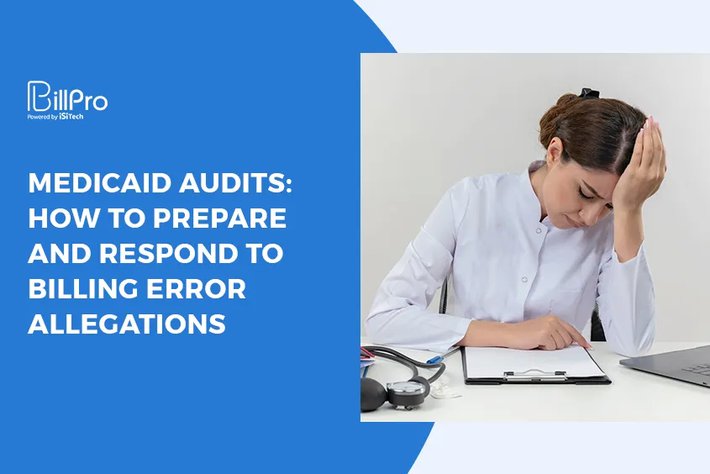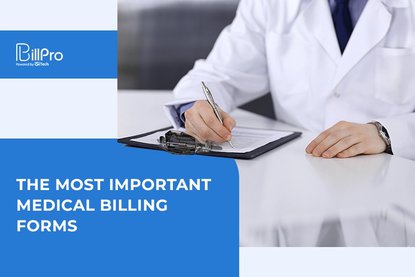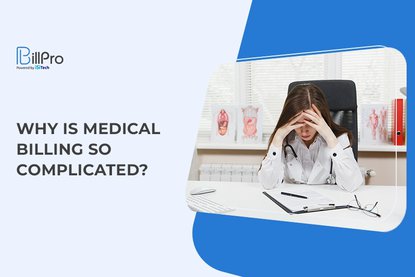Medicaid is jointly funded by the federal government and individual states. There are strict guidelines to follow and requirements to submit before coverage approval.
Strict oversight ensures that funds are used appropriately. Medicaid audits look at potential abuse of resources and errors in billing.
Healthcare providers must be prudent with all documentation. Robust medical billing software could reduce errors that may lead to bigger problems.
What is a Medicaid Audit?
A Medicaid audit assesses the medical services billed to the Medicaid program, which provides healthcare coverage to millions of Americans. Audits closely evaluate program implementation based on federal and state laws. They ensure all policies of the Medicaid program are followed to the letter.
Specific functions of the audit include:
-
Ensure that Medicaid-reimbursable services were completed on the date stated in the medical bill
-
Confirm that the appropriate procedure codes and amounts were recorded in the bill
-
Evaluate if documents contain all relevant records based on program requirements
-
Analyze if the payment claims were in accordance with health department regulations and provider manuals
The Centers for Medicare or Medicaid Services (CMS) conducts the audit through Audit Medicaid Integrity Contractors (audit MICs).
What entities are covered by the audit?
-
Hospitals
-
Pharmacies
-
Doctor’s offices
-
Other medical professionals and offices that receive Medicaid payment
What are the Costs of Medicaid Audits?
Medicaid is given about $0.19 for every $1 the national treasury spends on healthcare. It is the primary source of healthcare for over 80 million American citizens. Medicaid spending reached over $671 billion in 2020.
Medicaid is for those who can’t afford insurance, so every dollar must be spent correctly. Billing and coding errors, intentional or not, could result in lost funding that could have helped more people in need.
Here are some of the billion error allegations and Medicaid incidents that cost taxpayers millions of dollars:
$292 million overpayments in New York Medicaid program
According to a report from the Office of the New York State Comptroller, a lack of oversight in the New York Medicaid program led to $292 million in overpayments. The amount was never recovered.
The overpayments were part of the October 2015 to May 2020 audit report. It noted that Medicaid paid for pharmacy claims of $292 million when a third-party insurer should have covered them.
DiNapoli said that the Department of Health and the Office of the Medicaid Inspector General should have done more to recover the money. It could have helped thousands of people with their healthcare needs.
Improperly claimed Medicaid funds worth $439 million
According to the Office of Inspector General, New York’s claim of $439 million in school-based health services from October 2011 to June 2016 should not have been allowed based on the program's policies. The audit stated that not all services coded as healthcare were eligible for Medicaid coverage. Moreover, documentation was lacking to support the claims.
The audit ruled that the state should seek assistance preparing accurate documentation to support claims.
What is the Impact of Such Audits?
 In the $439 million case, the audit team recommended that the state refund the government $98 million.
In the $439 million case, the audit team recommended that the state refund the government $98 million.
Denied medical claims are going to hurt. Medicaid audits could result in medical facilities being ordered to refund the financial discrepancy.
After an audit, entities will always be given a chance to respond to billing error allegations.
Best Practices of Medicaid Audits: How to Respond
Billing error allegations are quite common. They can happen because of a simple human error or a serious case of intentional fraud. Either way, you must respond to the allegations and provide proof that you were not in the wrong.
Here are the steps you should take:
1. Send a Reply ASAP
The sooner you deal with audit findings, the better. Gather the appropriate documentation for an immediate and appropriate response.
Form a team and direct them to address and resolve the errors as quickly as possible. Submit the response and supporting documents before the given deadline.
2. Provide Complete Documentation
A Medicaid audit is not an outright allegation. It is only a statement that some claims do not add up. It is your responsibility to ensure that everything is accounted for, so obtain copies of the claims submitted to Medicaid for every audited patient. Compare these with your records to spot discrepancies.
Submit a copy of the entire patient record to provide a complete picture. Even historical data may help correct audit errors. If your billing team made an error, you must clearly explain why or how it happened.
You can also submit supporting medical literature that is not connected to the case but is similar in nature.
3. Official Reply Must be Well-Written
Every document in reply to the Medicaid audit must be written well, leaving no room for misinterpretation. A well-written response is free from grammatical errors, easy to read, with no unfamiliar words or uncommon abbreviations.
The best way to prevent billing error allegations is not to make them. While it is hard to ensure perfection in any workplace, medical billing software will significantly reduce errors compared to manual billing.
How Medical Billing Software Can Reduce Billing Errors
 Billing errors could lead to a medical claim denial, which may cost a medical facility millions of dollars. Investing in medical billing software will greatly reduce medical billing errors.
Billing errors could lead to a medical claim denial, which may cost a medical facility millions of dollars. Investing in medical billing software will greatly reduce medical billing errors.
How does medical billing software do this?
It Verifies Patient Eligibility
Cloud-based medical software can instantly verify Medicaid eligibility, which lowers the risk of rejected claims.
It Spots Medical Coding Errors
The system will recognize and flag possible medical billing and coding errors before submission. These are easier to correct at this stage.
It has Tracking and Monitoring Features
Tracking and monitoring mean more people can spot potential errors in bills immediately.
It can Immediately Help to Correct Records
A manual correction could take a long time because one record could affect multiple documents. With software, correcting an error would automatically correct other related mistakes.
However, more than medical software is needed. You also need to ensure the following:
-
Every patient record must be correctly encoded, dated, and signed.
-
Every record must contain complete details.
-
Don’t bill anticipated services, only services rendered.
-
Organize all hard copies of documents.
-
Medical professionals not enrolled in a Medicaid program must not handle Medicaid patients.
-
Use only Medicaid-recognized abbreviations.
Conclusion
Medical billing software is the best way to prevent billing errors that could affect your Medicaid claims. A single mistake could mean millions in medical claims that would impact the whole practice.
For your New York-based medical billing and coding software needs, BillPro provides a cost-efficient and easy-to-learn platform that eliminates or reduces errors. Get a free demo here.

 5/5 (1 vote)
5/5 (1 vote)
 461 views
461 views




